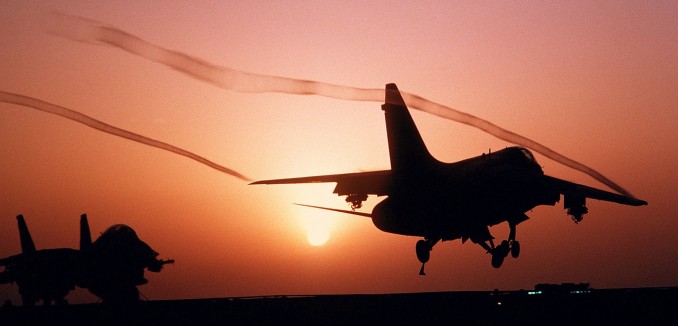Arab commentators believe that recent attacks attributed to Iran against the Islamic State of Iraq and Syria’s (ISIS) positions in Iraq show a significant strengthening of Tehran’s efforts to help its allies in Baghdad and Damascus and maintain its regional influence through the fight against the threat of radical Islamists.
Images of Iranian air strikes in eastern Iraq provided the first concrete evidence of direct involvement by the Iranian air force in the military campaign against ISIS. The US military believes that Iran has conducted air strikes against Isis targets in Diyala province in recent days, although the Defense Department insists that it is not co-ordinating any military action with Tehran.
Iran has not confirmed the information from the US military, but the Assistant Chief of Staff of the Iranian Armed Forces Gen. Masoud Gazairi emphasized the need to support Baghdad in the face of ISIS activity, saying:
“Without waiting for a response from anybody else, Iran is doing what it can to provide assistance to the Iraqi people based on humanitarian and Islamic duty to eliminate terrorism in that country.”
Since the blitz of ISIS last June, Iran has provided Kurdish fighters in Iraq with weapons and sent military advisers to the Iraqi forces. Iran also contributed to the training of Shi’ite militias involved in the attacks against ISIS.
Iran publicly asserts that job of responding to ISIS is Iraq’s and has consistently denied that it sent ground troops to Iraq. The Tehran government refused to participate in the international coalition led by the United States. Iran considers the alliance to be ineffective and serves the objectives of Westerners seeking to overthrow the Syrian regime, Iran’s regional ally.
Since October Iranian media has published several pictures of Gen. Ghassan Qassem Soleimani, commander of the Quds Force, an elite force in the Revolutionary Guards, showing him in the field with Iraqi Kurdish fighters and also with Iraqi soldiers and militia activists.
But Iran is also seeking to protect itself from Islamic extremists who declare that their goal is to overthrow the Shiite regime in Iraq. A Western diplomat in Tehran told Al-Arab (Arabic link) that “the Iranians are scared,” reminding that Tehran significantly strengthened its defenses along the border and vowed to attack ISIS inside Iraq territory if ISIS fighters approach its border.
Another Western diplomat suggested that Iran cannot officially confirm that it carried out air strikes against ISIS while at the same time it denounces Western-Arab raids in Iraq and Syria.
[Photo: Pixabay]




